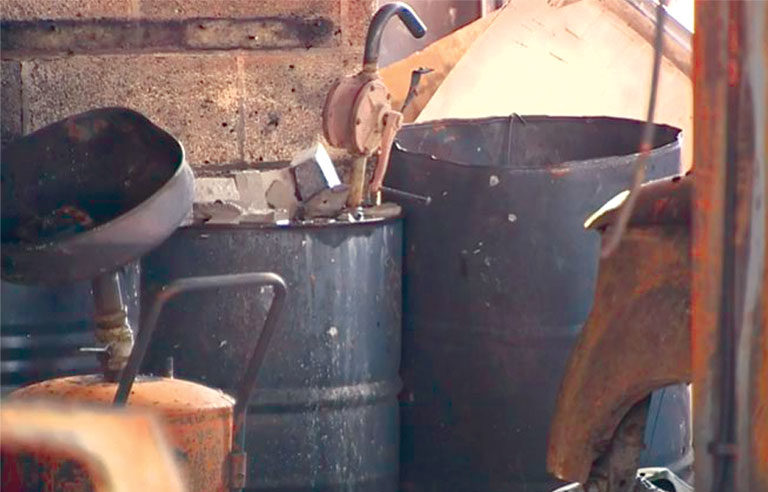FACE Report: Mechanic using welder fatally burned when washer fluid drum explodes

Case report: 19MA058
Issued by: Massachusetts State Fatality Assessment and Control Evaluation Program
Date of report: July 15, 2022
A 64-year-old automotive mechanic was working to remove the fuel pump from a car at his employer’s service garage. To accomplish the task, he was constructing a special tool using an oil filter wrench and other metal. The mechanic set up a temporary welding station on top of a 55-gallon steel drum that contained window washer fluid concentrate. The drum was nearly empty and had two bung holes in the lid. A co-worker held the work piece in position by extending his arm. To assemble the tool, the mechanic made a spot weld and was about to make another when the drum exploded and the top blew off. His co-worker, who suffered facial trauma and a burned arm, fled the garage as washer fluid vapors ignited and the fire began to spread. The mechanic was covered in burning fluid and was on the floor of the garage, underneath one of the vehicles. Other workers heard the explosion and gathered outside. Realizing the mechanic was still in the garage, they reentered the building to drag him out and used fire extinguishers to try to put out the flames on his body. His clothing eventually burned and was torn away to fully extinguish the flames on his body. Several people in the area heard the explosion and called 911. First responders arrived at the scene. The mechanic was treated at the scene and driven by ambulance to a nearby airport, then flown by helicopter to a regional Level I trauma center. He died six weeks later.
To help prevent similar occurrences, employers should:
- Provide an appropriate location to perform welding work. Hot work should take place a safe distance from flammable and combustible liquids.
- Ensure workers using welding equipment are trained in the safe operation of their equipment.
- Ensure all workers are educated on hazardous materials in the workplace.
- Develop and implement a comprehensive safety and health program.
Post a comment to this article
Safety+Health welcomes comments that promote respectful dialogue. Please stay on topic. Comments that contain personal attacks, profanity or abusive language – or those aggressively promoting products or services – will be removed. We reserve the right to determine which comments violate our comment policy. (Anonymous comments are welcome; merely skip the “name” field in the comment box. An email address is required but will not be included with your comment.)

